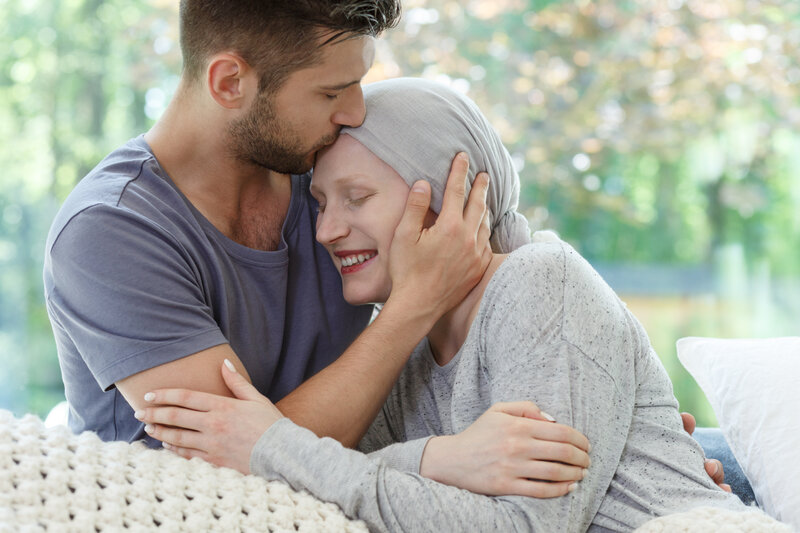Cancer remains one of the deadliest diseases across the world. For cancer patient caregivers, the responsibility may be overwhelming. However, whether you are a spouse, partner, parent, adult child, neighbor, close friend, or co-worker, a caregiver is essential to a cancer patient’s well-being.
A caregiver lends physical and emotional support that significantly differs in the cancer patient’s daily life. It is a role that cannot be taken lightly and can strengthen the bond between two people.
Indeed, there is sadness; your family member or friend has cancer. Despite these emotions, there can be a personal satisfaction in caring for a loved one. The caregiver role allows you to show love and respect.
The National Cancer Institute’s Annual Report to the Nation, released in March 2020, noted 18.1 million new cancer cases worldwide in 2018, with more than 9 million cancer-related deaths.
Between 2007-17, in the United States, cancer death rates decreased by 15%. The trend underlines the change in diagnostic practices, increased use of screening tests, a better understanding of risk factors, and advances in treatment protocols.
As of January 2019, there were almost 17 million cancer survivors in the U.S. By 2030, that number is projected to top 22 million.
“The drops in mortality we’re seeing are real, sustained, and a strong indication of what we can do when we work to prevent and treat cancer,” said American Cancer Society Chief Medical and Scientific Officer William G. Cance, M.D. “But we can and must do more, particularly to ensure everyone in the United States has access to the resources that are all too often benefitting only the most fortunate.”
By 2040, the number of new cancer cases per year is expected to eclipse 29 million; cancer-related deaths are projected to exceed 16 million.
The cancer caregiver’s role
Today, most cancer protocols are outpatient treatment. An at-home caregiver is part of the day-to-day care of the cancer patient. Because the patient is at home, caregivers must fill multiple roles – helping bathe, dress, feed, and housekeeping, among the basics. Caregivers also may lend a hand in managing schedules and providing transportation.
Caregivers often have to assume the cancer patient’s duties, including managing insurance issues, assisting with legal matters, and managing finances. Caregivers can feel alone, that they are responsible for the needs of the loved one. Some may feel guilty, burdened by thoughts that they cannot do it all. Caregivers may feel it’s selfish to ask for help.
It’s vital to know caregivers cannot do it all by themselves. Long-term care – and doing it alone – is not something you should try to do. Reach out to others who can help you and the cancer patient.
Here are four things to remember as a cancer caregiver:
Knowledge is power – Learn as much as possible about the type of cancer and the treatment options. The more you know about the disease and how to treat cancer, the easier it will be to talk with the patient and the healthcare professionals.
Embrace the new routine – Not only will the cancer patient’s life change, so too will the caregiver’s. First, it may seem like you’re losing control; understanding the differences and acknowledging the “new normal” is rooted in managing priorities on a day-by-day basis. Take breaks to lower your stress – take 10 minutes for yourself in a comfy chair, take a walk around the block to clear your mind. Time for you is not selfish; it’s necessary.
Find your support system – It is an emotional time when a loved one is diagnosed with cancer. Talk with other caregivers dealing with the uncertainty and stresses of caring for family and friends coping with cancer. It’s OK for others to help you; their assistance will ease your anxiety. Keep a list, small to large, of your tasks. When someone asks if you need help, you will have specific needs for them to help with.
Planning and scheduling – Plotting fun activities to enjoy should be a joint effort; it gives both the patient and the caregiver something to look forward to. (The end of treatment, when the patient is a cancer survivor, should be celebrated!) Also, the reality is that you should plan for the possibility of your loved one dying. Have peace of mind knowing necessary paperwork – funeral arrangements, a will, power of attorney – has been addressed.
To be present for a cancer patient, caregivers need to take care of themselves. Be self-aware of your ailments, schedule regular checkups and screenings, eat well, and be sure to rest and sleep.
Music, mediation, and yoga will help relieve stress. There also are groups that can help you deal with the daily anxieties of being a cancer patient caregiver. You’re not a trailblazer; others have successfully navigated these waters and are willing to share their experiences and insight.
You cannot do everything. Once you admit this and come to terms with feeling overwhelmed, you will have a firm understanding of what you can and cannot do alone. The pivotal moment is when you embrace that together the cancer patient and the caregiver can get through this life season.
Citations
National Cancer Institute. Cancer Statistics. https://www.cancer.gov/about-cancer/understanding/statistics
National Cancer Institute. Cancer Stat Facts. https://seer.cancer.gov/statfacts/
National Cancer Institute. Support for Caregivers of Cancer Patients. https://www.cancer.gov/about-cancer/coping/caregiver-support

